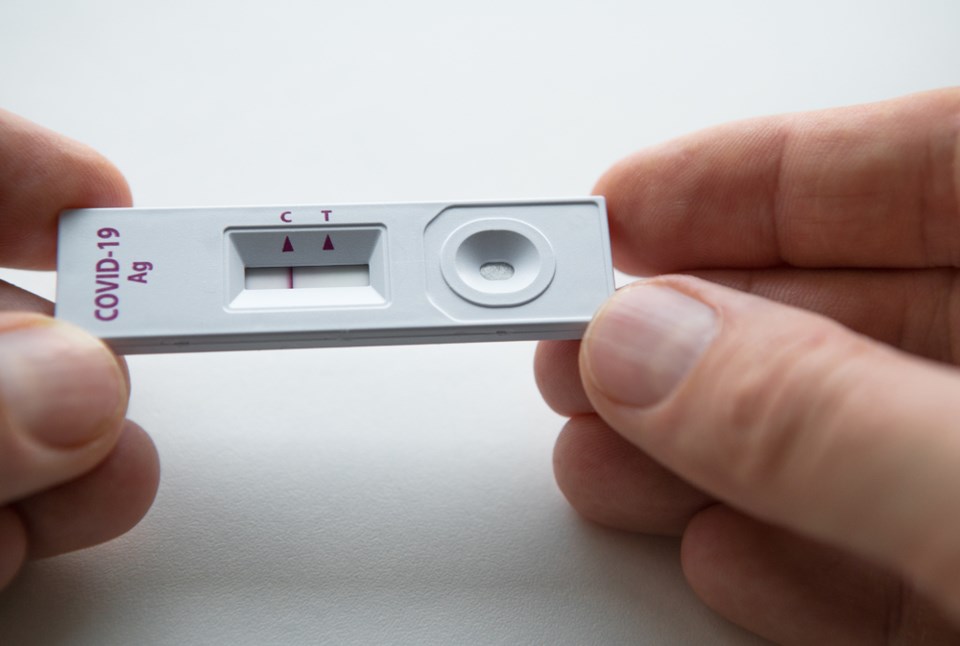Rapid antigen tests may be how we get to normalcy as an exhausted public looks forward to COVID-19 diminishing to "endemic" status.
While Canada’s top medical health officer, Dr. Theresa Tam, admits provinces will have to “find a balance” between restrictions and opening up, the solution to next steps may be right in front of us.
Rapid Antigen Tests are now available in many Tri-City pharmacies.
For $30, you can get two tests that will tell you within 20 minutes if you have COVID-19.
It’s not a cheap solution, but it will help people who need some sort of assurance as to how to get on with their lives.
Governments are getting on board by making subsidized tests available to schools, child care settings and employers.
But you can also purchase tests at your local pharmacy: I called half a dozen places on the government's list in Coquitlam and Port Coquitlam, and all but one had at least a couple of tests available.
While it seems as if Omicron is diminishing in the Tri-Cities, given the sharp drop in recorded infections in recent weeks, there is no question that it is still circulating and anyone can get it without knowing where they picked it up.
I woke up to that reality today (Feb. 8) just hours before heading to the office.
That’s when my dog-walking friend told me she didn’t expect to get Omicron after getting her third vaccine against the virus.
After all, she works at home and has taken all the required precautions — although she did go to a restaurant and went grocery shopping.
But when I saw her double masked walking her beloved pet, she admitted she was tested at her mom’s long-term care facility and it turned out she had caught the virus.
“I don’t know where I got it,” she told me. “I’ve been cautious.”
If it wasn’t for the test to ensure her mother’s care home stayed virus free, my friend would never have known.
“I didn’t feel sick,” she told me, as she stood six feet away, while our dogs sniffed and wrestled with each other.
Thankfully, she did get tested before entering her mother’s home, where she unknowingly could have shed the virus, possibly putting people at risk.
She’s now isolating from her mom and her husband, who coaches kids’ sports. She doesn’t want him to get COVID-19 and possibly pass on the virus.
The recommendation is that you take the test when you have symptoms.
However, in places where people are at risk, such as hospitals and long-term care facilities, surveillance screening may be necessary to catch those who don’t have symptoms — like my friend.
Admittedly, PCR lab confirmed tests are more accurate than rapid antigen tests that could yield false negatives and false positives if used incorrectly or are from a bad batch.
However, they could be useful in a strategy for protecting the health care system.
Although I don’t look forward to it, putting a swab up my nose for a test may become routine before entering a place where people might be at risk.
But that’s the least I can do if it means I can help keep others safe while getting my own life back to a more "care-free" normal.





